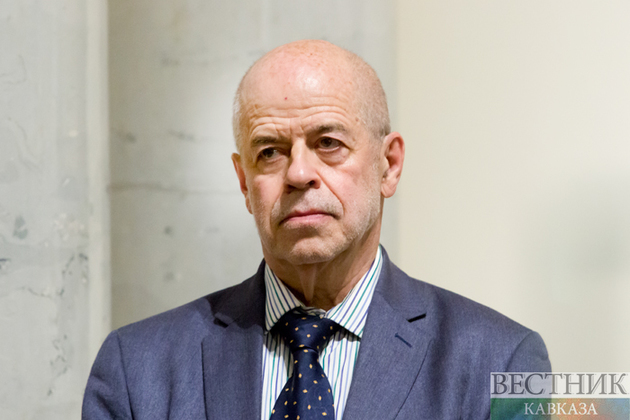Tomorrow, from 7:30 Moscow time, fighting between the IDF and Hamas will cease in the Gaza Strip. Tel Aviv agreed to take a break for 4 days for the exchange of hostages between the parties. Vestnik Kavkaza talked with the Academic Director of the Institute of Oriental Studies of the Russian Academy of Sciences, Academician of the Russian Academy of Sciences, Doctor of Historical Sciences, Professor Vitaly Naumkin about why the war could not be stopped for so long and what awaits Israel and Palestine next.
- Vitaly Vyacheslavovich, in your opinion, why was it possible to agree on the exchange of hostages only now, after a month and a half of hostilities?
- The negotiations took about a month and a half because each of the parties set themselves maximalist goals that could be achieved only through a compromise. It was eventually reached through the mediation of a number of states. In my opinion, it did not take very long, since the negotiations were very difficult, and as a result, both sides made big concessions.
Hamas's negotiation position (that is, the initial condition with which people enter into negotiations, and then gradually withdraw from them if the other party also shows a willingness to slow down) sounded like "an everyone for everyone exchange". That is, 240-250 hostages (mostly Israelis) taken on October 7 will be exchanged for all Palestinian prisoners in Israeli prisons. It is about 5-6 thousand people. Of course, this demand was absolutely unacceptable for Israel, and its unacceptability was determined by two arguments:
- among these people there are those accused of very serious violent crimes against the Israelis, they absolutely cannot be released, they must be punished;
- as past agreements on the release of prisoners accused of terrorist crimes show, returning from Israeli prisons, these people continued the same activities.
On this basis, the Israelis were against the release of a huge mass of people through an unequal exchange in terms of numbers. Hamas also did not want to give up, otherwise..what was the reason to take hostages? Not just for the sake of some blind revenge. Nothing like that. According to Hamas, the hostages were "living goods" for them in order to get their comrades back. As a result, during the negotiations, where Qatar and Egypt played the main roles, they agreed to a compromise.
Israel's negotiation position was the complete liberation of the Gaza Strip from Hamas, and Hamas' request was the elimination of the occupation. Both sides were unable to achieve these goals and were forced to reach an interim decision on the exchange of hostages, taking into account the circumstances.
In addition to this, the task of releasing the hostages involved the solution of another intermediate task, which is a humanitarian pause or a temporary truce. It was no less difficult to negotiate on this issue. Israel believed that Hamas was using the truce to regroup and gather strength to continue fighting. Israel considers the actions of Hamas terrorist activities, while Hamas itself calls it liberation struggle. On the other hand, the Israeli leadership was put under pressure by the fact that too many Gaza civilians died as a result of IDF strikes.
Of course, it was necessary to come to an agreement immediately, to compromise on the hostages and not to kill so many people in order to come to the same result now. However, the positions of the parties were so different that even the current interim solution took, I believe, very little time.
- In your opinion, can an exchange of hostages become the basis for a complete cessation of hostilities?
No, it can not. After the exchange, the hostilities will resume.
- What are the current scenarios for post-war life in the Gaza Strip?
- One of the scenarios is the unification of Gaza with the West Bank. It is being discussed in Israel and the Arab world. This is a distant horizon, since implementation will not be easy, but the essence of the scenario is that the Gaza Strip will be placed under the control of the Palestinian National Authority, with the centre in Ramallah.
Another scenario is the involvement of Egypt, which once controlled the Gaza Strip. The question of how Egypt can be forced to take over the administration of Gaza is being discussed, since the country refuses to do it. There is also a scenario for the re-occupation of Gaza by the Israeli army and a scenario of the involvement of a group of Arab states in the management of the sector. Now I'm not talking about the realism of certain options, I'm just listing the scenarios that they have. So far, none of them seem more realistic or preferable compared to the others.
There are strong objections to each of the scenarios, especially the reoccupation of Gaza. Israel and the Israeli army are not ready for this. At the same time, there is an option of military control over the Gaza Strip along the lines that exists in the West Bank. There is a system of military control without any kind of Israeli sovereignty over all territories of the West Bank.
The main task, which is to achieve a sustainable ceasefire, has not yet been solved. Now the exchange will take place, then the pause will end, and we will see if the conflicting parties will continue violent hostilities again. If so, then it is too early to talk about scenarios for post-war life. The parties must reach a stable, long-term ceasefire.






